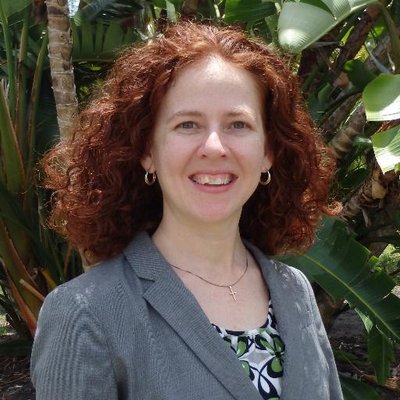Season 1
celebrating the year of indigenous languages
About Season 1
Season One celebrates the UN-designated Year of Indigenous Languages. In each of six episodes, host Joy Banks speaks with people involved in the work of restoring audio and audiovisual recordings of indigenous languages and their sometimes Herculean efforts to make these recordings accessible to the communities they represent.
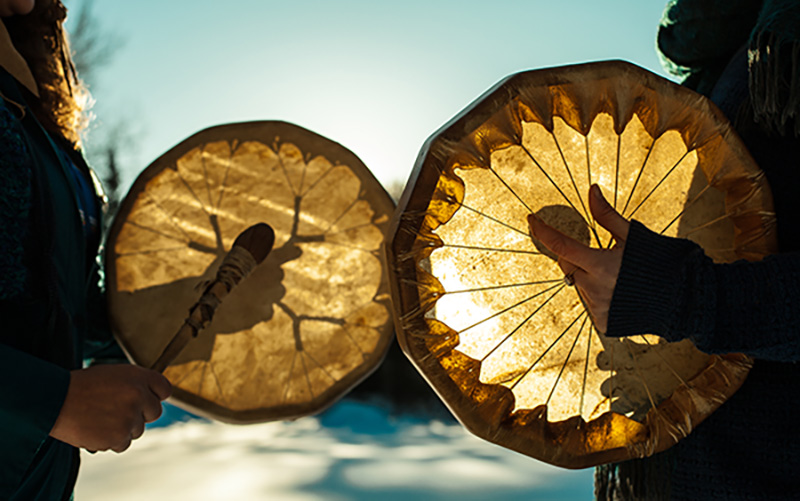
Our Guests
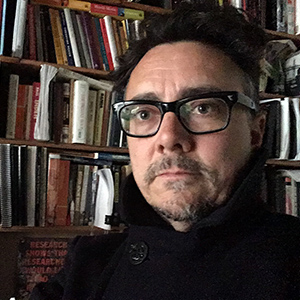
Chris Aplin
Recorded sound collection consultant
T. Christopher Aplin (UCLA) is a recorded sound collection consultant who helps build sustainable digital collections that reinforce tribal community library, language, and history programs. He is currently working with the Fort Sill Apache Tribe to earn grant funding and secure long-term preservation for oral histories, language, and songs recorded on analog instantaneous discs (“records”), reel-to-reels, and cassettes for future generations. A 20-year colleague and friend of the Fort Sill Apache community, he is also writing a book about the music of the Apache prisoners of war taken with Geronimo in 1886.
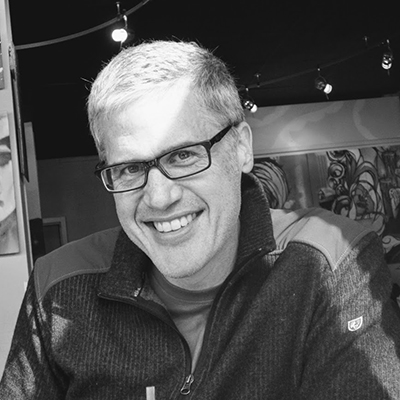
Craig Breaden
Audiovisual Archivist, Duke University
Craig Breaden is the audiovisual archivist at the David M. Rubenstein Rare Book and Manuscript Library at Duke University, where he has worked on a variety of collections and projects focusing on time-based media, including the Frank Clyde Brown Field Recordings Collection, the H. Lee Waters Film Collection, the Jazz Loft Project Papers, and the Radio Haiti Records. He also manages the Rubenstein Library’s oral history collections, including the Re-Imagining Project, the Duke University Oral History Program, Indivisible: Stories of American Community, and many others. He holds an MA in History from Utah State University and an MLS from the University of North Carolina at Chapel Hill.
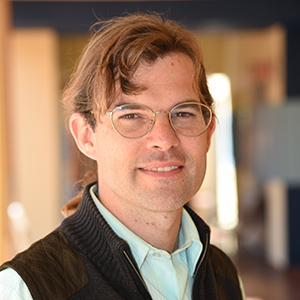
Josh Garrett-Davis
Associate curator, Autry Museum of the American west
Josh Garrett-Davis is the Gamble Associate Curator of Western History, Popular Culture, and Firearms at the Autry Museum of the American West in Los Angeles. He is also a PhD candidate in U.S. history at Princeton University, researching Native American engagements with sound technology in the early 20th century. His article “The Intertribal Drum of Radio: The Indians for Indians Hour and Native American Media, 1941-1951” appeared in Western Historical Quarterly in 2018. He is the author of two books about the American West.
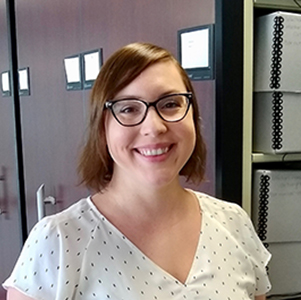
Brenda Flora
Curator of moving images and recorded sound, amistad research center
Brenda Flora is the curator of moving images and recorded sound at the Amistad Research Center in New Orleans, Louisiana. She holds a master’s degree in film archiving from the University of East Anglia and is a member of the Academy of Certified Archivists and the Association of Moving Image Archivists, where she currently serves as co-chair of the Advocacy Committee of the Board. She has been with Amistad since 2010 and has completed several grant-funded projects including projects funded by CLIR, the National Historic Publications and Records Commission, and the National Park Service.
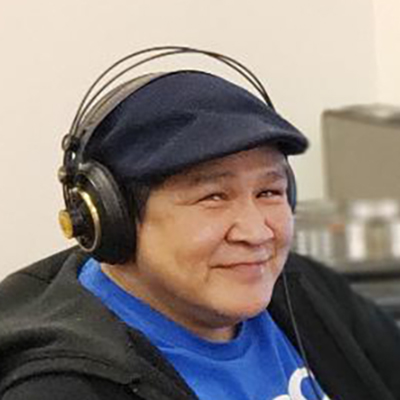
Billy Kenton
Digitization technician, Tuzzy Library
Billy Kenton is from Barrow, Alaska and works at the Tuzzy Library as a digitization technician. He digitizes recordings of Inupiat culture and stories as told by elders of the past, and also does some translating and summarizing of the recordings, as well as making corrections on past mistakes of descriptions of the recordings as needed. He is also digitizing tapes from the surrounding villages of the North Slope area: Wainwright, Atqasuk, Nuiqsut, Barter Island, Anaktuvuk Pass, Point Lay, and Point Hope.
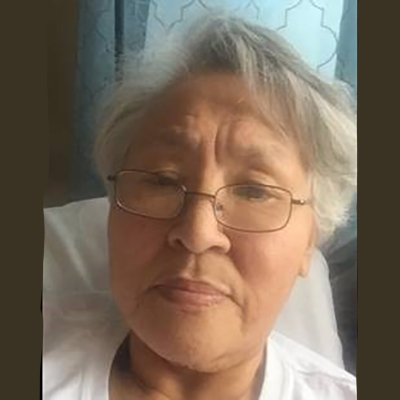
Leona Okakok
Scholar and Iñupiaq Translator
Born and raised in Utqiaġvik, Alaska, Leona Okakok was married to Rex A. Okakok, Sr. for 56 years. She has five children; she adopted two more and raised a foster child. Leona has a love for language and cross-cultural studies. She is the author of Puiguitkaat and “Serving the Purpose of Education,” (Harvard Educational Review, Dec. 1989). She helped translate The Meaning of Ice. She attended Sheldon Jackson College and University of Alaska, Fairbanks.
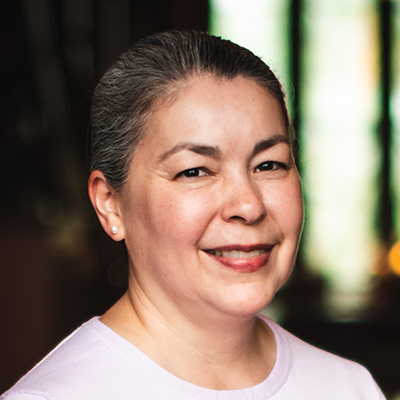
Lina Ortega
Associate Curator of Western History Collections, University of Oklahoma Libraries
Lina Ortega serves as the Associate Curator of the Western History Collections at the University of Oklahoma Libraries. A proud member of the Sac and Fox Nation of Oklahoma, she is interested in how archival and special collections can be used by Native Americans for cultural revitalization.
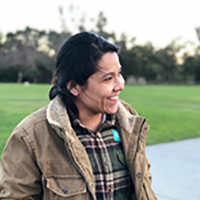
Lylliam Posadas
Repatriation and community research manager, autry museum of the american west
Lylliam Posadas is the repatriation and community research manager at the Autry Museum of the American West in Los Angeles. She joined the Autry in 2016 after working as assistant curator of archaeological collections at the Fowler Museum at UCLA. Lylliam holds an MSc in the Technology and Analysis of Archaeological Materials from University College London and a BA in Anthropology and Psychology from UCLA. She is interested in the processes of developing and maintaining culturally responsive research practices and the use of non-destructive and non-invasive methods of investigating community-driven research questions.
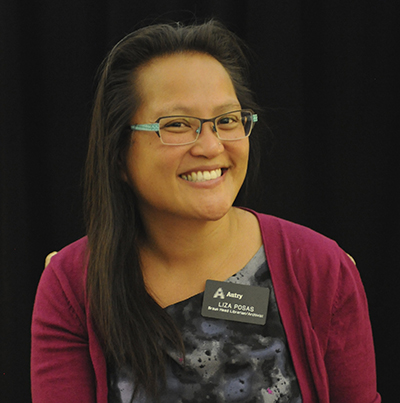
Liza Posas
Head of Research Services and Archives, Autry Museum of the American West
Liza Posas joined the Autry Museum of the American West in 2005 and serves as the Head of Research Services and Archives. In recent years, she has concentrated on building collaborations related to the practices supporting ethical stewardship for tribal collections. She is currently developing a workbook funded by the Society of American Archivist Foundation that examines the intersecting activities between the Native American Graves Protection and Repatriation Act (NAGPRA) policies and Protocols for Native American Archival Materials (PNAAM) guidelines.
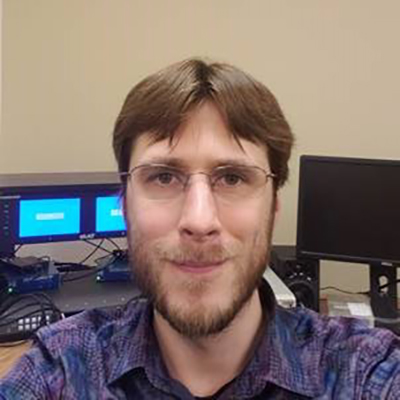
Jason Russell
Archivist/Technical Services Librarian, Tuzzy Consortium Library
Born and raised outside of Fairbanks, Alaska, into a dog mushing family, Jason Russell is married to Dawna Raidmae and has one child. With a love for all things historical, Jason has spent the last four years on a variety of language preservation, digitization, and cataloging activities. He received his MLIS degree through Southern Mississippi, and bachelors degree in English through the University of Alaska Fairbanks.
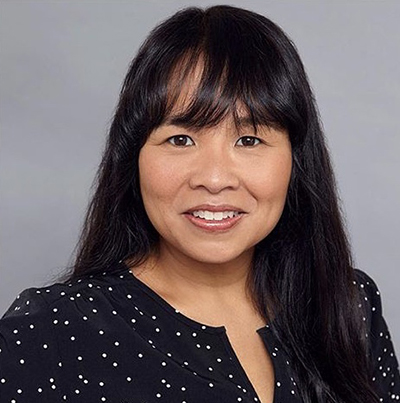
Yuri Shimoda
Recordings at Risk Intern, Autry Museum of the American West
In June 2019, Yuri Shimoda earned her MLIS at UCLA, with a focus in media archival studies, and served as the CLIR Recordings at Risk Intern at the Autry Museum of the American West, a clerk for Los Angeles Public Library, and an asset specialist intern for Walt Disney Imagineering. She is the founder of the first student chapter of the Association for Recorded Sound Collections (ARSC), co-founder of Basement Tapes Day, and spent a summer as a Library of Congress Junior Fellow in the Recorded Sound Section of the National Audio-Visual Conservation Center. Her research interests include community archiving and the preservation of sound recordings.
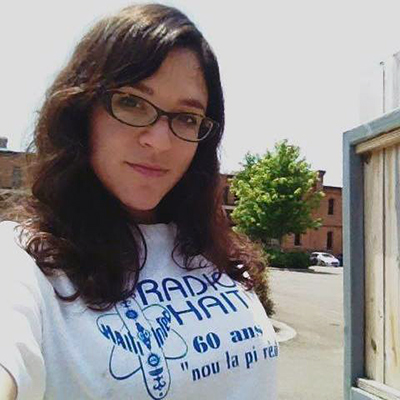
Laura Wagner
Project Archivist, Radio Haiti
From 2015 to 2019, Laura Wagner was the project archivist for the Radio Haiti Archive at the David M. Rubenstein Rare Book & Manuscript Library at Duke University. She holds a PhD in cultural anthropology from UNC Chapel Hill, where her research focused on people’s experiences of displacement, humanitarian aid, and everyday life in the aftermath of the 2010 earthquake in Haiti. Her nonfiction writing has appeared in Salon, Slate, sx archipelagos, and other venues. She is also the author of Hold Tight, Don’t Let Go (2015), a young adult novel about the Haiti earthquake.

Lerin Williams
master's candidate in ethnomusicology, Tulane University
Lerin Williams is a master’s candidate in ethnomusicology at Tulane University. She has worked as a graduate assistant at the William R. Hogan Jazz Archive and the Amistad Research Center. Her ethnographic fieldwork in transnational knowledge production, oral history, cultural heritage, and linguistics has taken her to Brazil and the Caribbean. She has interned with the Louisiana Museum of African American History, and participated as a member of their Martinique delegation. Williams’s scholarship in ethnomusicology is concerned with community-led approaches to the preservation and continuity of material and intangible culture.
Meet the Host
Joy Banks is program officer for CLIR’s grant team. She helps manage communications, outreach, and assessment activities for the Recordings at Risk, Digitizing Hidden Special Collections and Archives, and Cataloging Hidden Special Collections and Archives programs. She is the author of The Foundations of Discovery: A Report on the Assessment of the Impacts of the Cataloging Hidden Collections Program, 2008-2019, published in 2019.

